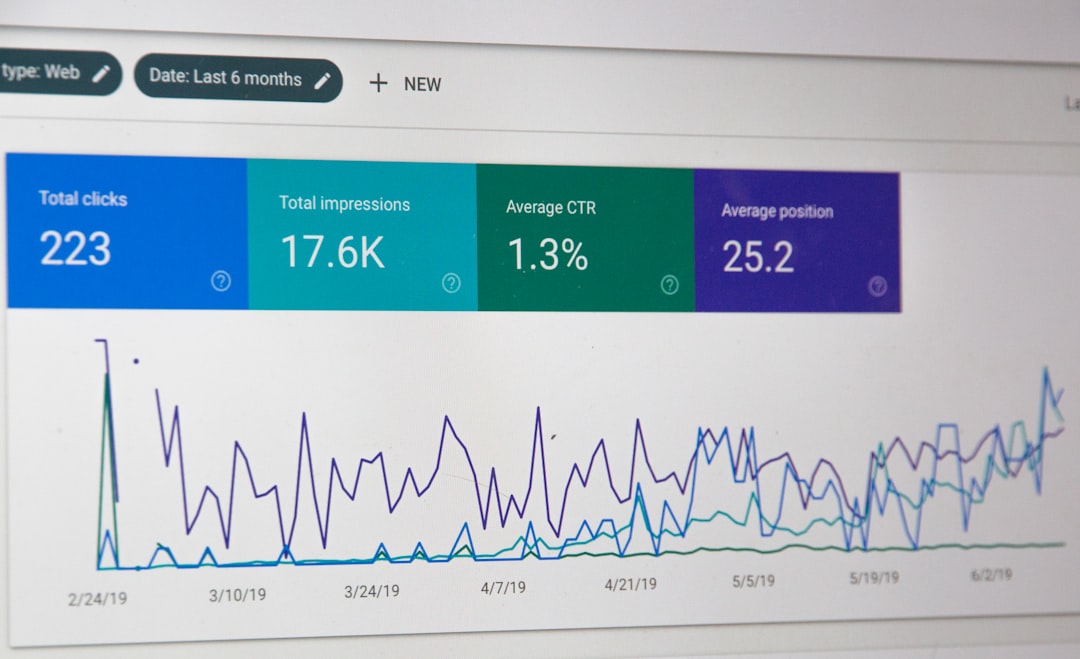A Comprehensive Guide to Understanding Affiliate Marketing: Everything You Need to Know
1. Introduction
Affiliate marketing has become a popular and effective way for individuals and businesses to generate income online. By promoting products or services and earning a commission for each sale made through their unique affiliate link, marketers can earn passive income and potentially build a profitable online business.
Whether you are new to the world of online marketing or looking to expand your revenue streams, this comprehensive guide will provide you with everything you need to know about affiliate marketing. From understanding the fundamentals to implementing effective strategies, this guide will equip you with the knowledge and tools to succeed in the world of affiliate marketing. So, let's dive in and explore the exciting opportunities that await!

2. What is affiliate marketing?
Affiliate marketing is a performance-based marketing strategy in which individuals or businesses promote products or services and earn a commission for each sale or lead generated through their unique affiliate link. It is a win-win situation for both the affiliate marketer and the company or merchant because the marketer receives a commission for every successful referral, while the merchant gains new customers and increased sales.
In affiliate marketing, the affiliate plays the role of a middleman between the company or merchant and the potential customers. The affiliate marketer uses various marketing tactics to drive traffic to their unique affiliate link, such as content marketing, social media promotion, email marketing, and paid advertising. When a customer clicks on the affiliate link and makes a purchase or completes a desired action, such as signing up for a newsletter or filling out a form, the affiliate is rewarded with a commission.
Affiliate marketing offers a great opportunity for individuals or businesses to earn passive income and potentially build a profitable online business. With the right strategies, affiliates can earn a substantial income by promoting products or services that align with their target audience's interests and needs. Additionally, affiliate marketing offers flexibility in terms of time and location, allowing affiliates to work from anywhere and at their own pace.
One of the key advantages of affiliate marketing is the low barrier to entry. Anyone can become an affiliate marketer, regardless of their background or experience. All you need is a platform to promote products or services, such as a website, blog, social media account, or email list, and the willingness to put in the effort to drive traffic and generate conversions.
Affiliate marketing has become a popular and effective way for individuals and businesses to monetize their online presence and generate income. It provides a mutually beneficial relationship between affiliates and merchants, allowing both parties to grow and succeed in the competitive online marketplace. In the following sections, we will dive deeper into the various aspects of affiliate marketing, including the different types of affiliate programs, how to choose the right products or services to promote, and the strategies to maximize your earnings as an affiliate marketer.

3. How does affiliate marketing work?
Affiliate marketing works through a simple and effective process. Here is a step-by-step guide on how affiliate marketing works:
1. Join an Affiliate Program: The first step is to join an affiliate program or network. There are numerous affiliate programs available, ranging from individual companies to affiliate networks that connect affiliates with multiple merchants. Choose a program that aligns with your niche and offers products or services that you are interested in promoting.
2. Choose Products or Services to Promote: Once you have joined an affiliate program, you can browse through the available products or services and choose the ones you want to promote. It is important to select products or services that are relevant to your target audience and align with their interests and needs. This will increase the likelihood of conversions and earn you higher commissions.
3. Get Your Unique Affiliate Link: After selecting the products or services, you will receive a unique affiliate link for each item. This is a special tracking URL that is specific to you and allows the merchant to track the traffic and sales generated through your promotions. It is crucial to use your affiliate link whenever you promote the products or services to ensure that you receive credit for any conversions.
4. Promote the Products or Services: Now that you have your affiliate link, you can start promoting the products or services through various channels such as your website, blog, social media platforms, email marketing campaigns, or paid advertising. It is important to create compelling and engaging content that persuades your audience to click on your affiliate link and make a purchase or complete a desired action.
5. Drive Traffic to Your Affiliate Link: The success of affiliate marketing heavily relies on driving traffic to your affiliate link. There are several strategies you can employ to attract traffic, including creating valuable and informative content, utilizing search engine optimization techniques, engaging with your audience on social media, running targeted advertising campaigns, and leveraging email marketing.
6. Generate Conversions and Earn Commissions: When a user clicks on your affiliate link and makes a purchase or completes the desired action, such as filling out a form or signing up for a free trial, you earn a commission. The commission structure varies depending on the affiliate program and can be a percentage of the sale amount or a fixed rate per conversion. As you drive more targeted traffic and generate conversions, your earnings as an affiliate marketer increase.
7. Track and Optimize Your Performance: It is essential to track your affiliate marketing performance to understand what strategies are working well and which ones need improvement. Most affiliate programs provide comprehensive analytics and reporting tools that allow you to track your clicks, conversions, and commissions. By analyzing this data, you can optimize your promotions and focus on the products or services that yield the highest returns.
8. Build and Expand Your Affiliate Marketing Business: Once you have established a successful affiliate marketing business, you can continue to grow and expand your efforts. This can include finding new affiliate programs to join, diversifying your product offerings, expanding your reach to new audiences, and leveraging advanced marketing techniques to increase your conversions and earnings.
In conclusion, affiliate marketing offers a lucrative opportunity to generate passive income by promoting products or services and earning commissions for successful referrals. By understanding how affiliate marketing works and implementing effective strategies, you can build a profitable online business.

4. The benefits of affiliate marketing
Affiliate marketing offers numerous benefits for both affiliates and merchants. Here are some of the key benefits of affiliate marketing:
1. Increased Revenue: For affiliates, affiliate marketing provides an opportunity to generate passive income. As affiliates promote products or services and drive conversions, they earn commissions. Affiliate marketing allows affiliates to leverage their audience and marketing skills to earn a percentage of each sale or a fixed rate per conversion. This can result in a significant increase in revenue for affiliates, especially if they have a large and engaged audience.
2. Cost-Effective: Affiliate marketing is a cost-effective marketing strategy for merchants. Instead of spending money on traditional advertising methods, merchants only pay affiliates when they successfully generate a sale or a desired action. This means that merchants can focus their budget on other areas of their business and only spend money on marketing efforts that yield results.
3. Expanded Reach: Through affiliate marketing, merchants can tap into the existing audiences of their affiliates and reach a wider customer base. Affiliates often have their own blogs, websites, social media platforms, or email lists, which they use to promote products or services. By partnering with affiliates, merchants can benefit from the exposure to new audiences and potential customers that they may not have been able to reach on their own.
4. Increased Brand Awareness: Affiliate marketing can significantly boost brand awareness for merchants. As affiliates promote products or services, they also mention and promote the merchant's brand. This exposure to a diverse range of audiences helps increase brand visibility and recognition. Additionally, positive reviews and testimonials from affiliates can enhance the reputation and credibility of the merchant's brand.
5. Performance-Based Marketing: Affiliate marketing is a performance-based marketing model. This means that affiliates are incentivized to drive results and generate conversions. Since affiliates earn commissions based on their performance, they are motivated to employ effective marketing strategies, such as creating high-quality content, utilizing SEO techniques, and running targeted advertising campaigns. This focus on performance ensures that merchants get value for their marketing investment.
6. Flexibility and Scalability: Affiliate marketing offers flexibility for both affiliates and merchants. Affiliates have the freedom to choose the products or services they want to promote, allowing them to align their promotions with their niche and audience interests. This flexibility enables affiliates to cater to their audience's needs and preferences, resulting in higher conversions. Similarly, for merchants, affiliate marketing allows them to scale their business by partnering with multiple affiliates and expanding their reach to different markets and audiences.
7. Return on Investment (ROI): Affiliate marketing has the potential to generate a high return on investment for both affiliates and merchants. For affiliates, the low entry barriers and minimal upfront costs make it an attractive option. As they gain experience and optimize their marketing strategies, affiliates can earn substantial commissions compared to their initial investment. For merchants, the pay-for-performance model ensures that they only pay for actual sales or conversions, resulting in a positive return on their marketing investment.
In summary, affiliate marketing presents a win-win situation for both affiliates and merchants. Affiliates can monetize their online presence and marketing skills, while merchants can leverage the reach and influence of affiliates to increase their sales and revenue. With its numerous benefits and potential for success, affiliate marketing continues to be an integral part of the digital marketing landscape.

5. Finding the right affiliate program
Finding the right affiliate program is crucial for the success of your affiliate marketing efforts. With countless affiliate programs available, it's important to choose the ones that align with your niche, audience, and marketing goals. Here are some key steps to finding the right affiliate program:
1. Research and Evaluate Potential Programs: Start by researching and compiling a list of potential affiliate programs that relate to your niche or industry. Look for programs that offer products or services that are relevant to your audience and align with your brand values. Pay attention to factors such as commission rates, cookie durations, and payment terms. Evaluate the reputation and track record of each program to ensure they have a solid history of paying affiliates on time.
2. Consider the Product or Service: Assess the quality of the product or service you'll be promoting as an affiliate. It's important to choose programs that offer high-quality products or services that provide value to your audience. Consider factors such as product reputation, customer reviews, and customer support. Remember, promoting subpar products or services can damage your credibility and trust with your audience.
3. Check Affiliate Program Terms and Conditions: Carefully review the terms and conditions of each affiliate program you're considering. Look for any restrictions or requirements that may affect your ability to promote the products or services effectively. Pay attention to exclusivity clauses, geographical limitations, and any restrictions on the promotional methods you can use.
4. Assess Affiliate Support and Resources: Look for affiliate programs that provide ample support and resources to assist you in your promotional efforts. Consider whether the program offers marketing materials, product guides, banners, or any other resources that can help you effectively promote the products or services. Additionally, check if the program offers dedicated affiliate managers who can offer support and guidance when needed.
5. Research Commission Structure: Understand how the affiliate program structures its commission rates. Some programs offer flat rates per sale or conversion, while others may offer tiered commission structures or recurring commissions. Consider which commission structure aligns best with your goals and potential earnings. Be cautious of programs that promise unusually high commission rates, as they may have hidden conditions or restrictive payout terms.
6. Look for Affiliate Tracking and Reporting Tools: Effective tracking and reporting are essential for monitoring the performance of your affiliate marketing efforts. Ensure that the affiliate program offers robust tracking tools that provide accurate data on clicks, conversions, and commissions. Look for programs that provide real-time reporting, as this will enable you to optimize your strategies and campaigns for maximum results.
7. Read Reviews and Seek Recommendations: Before finalizing your decision, read reviews and seek recommendations from other affiliates or industry professionals. This can provide valuable insights into the reliability and credibility of the affiliate program. Consider joining affiliate marketing communities or forums where you can interact with experienced affiliates and gain insights into the best programs in your niche.
Remember, finding the right affiliate program requires thorough research and consideration. Take the time to evaluate your options carefully, keeping your audience's needs and preferences in mind. By choosing the right affiliate program, you can maximize your earnings and build a successful affiliate marketing business.

6. Creating successful affiliate partnerships
Creating Successful Affiliate Partnerships
Creating successful affiliate partnerships is crucial for the success of your affiliate marketing efforts. By partnering with the right affiliates, you can effectively promote your products or services and generate significant revenue. Here are some key steps to creating successful affiliate partnerships:
1. Define Your Target Audience: Before reaching out to potential affiliates, it's important to clearly define your target audience. Understand who your ideal customers are and what their needs and preferences are. This will help you identify affiliates who have a similar target audience and can effectively promote your products or services to them.
2. Research and Identify Potential Affiliates: Conduct thorough research to identify potential affiliates who align with your niche, audience, and marketing goals. Look for affiliates who have a strong online presence, high engagement with their audience, and a good reputation in your industry. Consider reaching out to influencers, bloggers, content creators, and industry experts who have a genuine interest in your products or services.
3. Evaluate Affiliate Credentials: When considering potential affiliates, evaluate their credentials and track record. Look for affiliates who have a proven track record of success in promoting similar products or services. Check their website, social media profiles, and past collaborations to assess their credibility and professionalism. Additionally, consider the level of engagement and interaction they have with their audience.
4. Establish Clear Communication Channels: Effective communication is key to building successful affiliate partnerships. Establish clear communication channels with your affiliates to ensure seamless collaboration. Provide them with the necessary information, promotional materials, and guidelines to promote your products or services effectively. Regularly communicate with affiliates to address any questions or concerns they may have and provide ongoing support.
5. Offer Competitive Commission Rates: To attract high-quality affiliates, offer competitive commission rates that align with industry standards. Research the average commission rates in your industry and ensure that your rates are attractive enough to motivate affiliates to promote your products or services. Consider offering tiered commission structures or performance-based incentives to reward top-performing affiliates.
6. Provide Affiliate Training and Resources: Support your affiliates by providing comprehensive training and resources. This can include product demos, tutorials, marketing materials, banners, and landing pages. Equip your affiliates with the knowledge and tools they need to effectively promote your products or services. Additionally, offer ongoing support and guidance to help them optimize their promotional strategies.
7. Track Performance and Provide Feedback: Implement an effective tracking system to monitor the performance of your affiliates. Track key metrics such as clicks, conversions, and sales generated by each affiliate. Regularly analyze the performance data and provide feedback to your affiliates. Recognize and reward top performers to incentivize their continued promotion of your products or services.
8. Foster Long-Term Relationships: Building successful affiliate partnerships is not just about short-term gains. Foster long-term relationships with your affiliates by providing ongoing support, incentives, and opportunities for collaboration. Regularly engage with your affiliates, offer exclusive promotions or discounts, and explore co-marketing opportunities to strengthen the partnership.
Remember, creating successful affiliate partnerships requires time, effort, and a strategic approach. By carefully selecting and nurturing your affiliates, you can significantly enhance the reach and impact of your affiliate marketing campaigns.

7. Tracking and measuring your affiliate marketing efforts
Tracking and Measuring Your Affiliate Marketing Efforts
In order to maximize the effectiveness of your affiliate marketing campaigns, it is crucial to track and measure your efforts. By monitoring key metrics and analyzing the performance data, you can gain valuable insights into the success of your affiliate partnerships and make informed decisions to optimize your strategy. Here are some important steps to track and measure your affiliate marketing efforts:
1. Set Clear Goals and Objectives: Before you start tracking your affiliate marketing efforts, it is important to define your goals and objectives. What do you aim to achieve through your affiliate partnerships? Whether it is increasing sales, driving website traffic, or raising brand awareness, clearly articulate your goals to guide your tracking and measurement process.
2. Define Key Performance Indicators (KPIs): Identify the KPIs that are most relevant to your goals and objectives. These can include metrics such as clicks, conversions, sales, average order value, conversion rate, and return on investment (ROI). Choose KPIs that align with your specific objectives and will provide meaningful insights into the performance of your affiliate marketing efforts.
3. Implement Tracking Tools: To effectively track your affiliate marketing efforts, you need to implement reliable tracking tools. There are various tracking solutions available, such as affiliate tracking software or affiliate networks' built-in tracking systems. These tools allow you to assign unique tracking links or codes to each affiliate, which enable you to monitor their performance accurately.
4. Track Affiliate Conversions: One of the key metrics to monitor is conversions generated by your affiliates. This refers to the number of desired actions taken by users, such as making a purchase or filling out a lead form, as a result of the affiliate's promotional efforts. Tracking conversions will help you evaluate the effectiveness of your affiliates in driving desired actions.
5. Analyze Affiliate Sales and Revenue: Tracking the sales and revenue generated by each affiliate is essential to measure their impact on your bottom line. This data will help you identify your top-performing affiliates and allocate resources accordingly. Additionally, analyzing sales and revenue will provide insights into the profitability of your affiliate marketing campaigns.
6. Monitor Affiliate Clicks and Traffic: Tracking the number of clicks and the amount of traffic referred by each affiliate is essential to understand their reach and engagement. This data can help you assess the effectiveness of your affiliates in driving website visitors and identify potential areas for improvement. Furthermore, monitoring clicks and traffic can assist you in evaluating the quality of the affiliate's audience.
7. Assess Affiliate Engagement and Performance: In addition to tracking quantitative metrics, it is important to assess the overall engagement and performance of your affiliates. This can include factors such as the quality and relevance of their content, their communication and collaboration efforts, and their overall alignment with your brand values. Regularly evaluate these qualitative aspects to ensure the strength of your affiliate partnerships.
8. Utilize Analytics and Reporting: Make use of analytics and reporting tools to consolidate and analyze the data collected from your tracking efforts. These tools can provide valuable insights into the performance of your affiliate marketing campaigns, allowing you to identify trends, patterns, and areas for improvement. Utilize these insights to refine your strategy and optimize your future affiliate partnerships.
9. Continuously Optimize and Experiment: Tracking and measuring your affiliate marketing efforts should be an ongoing process. Use the data and insights gained to continuously optimize your strategy and experiment with different tactics or approaches. By analyzing the results, you can fine-tune your affiliate partnerships and drive better results over time.
Remember, tracking and measuring your affiliate marketing efforts is crucial for understanding the impact of your partnerships and making data-driven decisions. By investing time and resources into tracking, analyzing, and optimizing your affiliate marketing campaigns, you can maximize the effectiveness and success of your affiliate partnerships.

8. Common challenges in affiliate marketing and how to overcome them
8 Common Challenges in Affiliate Marketing and How to Overcome Them
While affiliate marketing can be a highly effective strategy for driving sales and generating revenue, it is not without its challenges. Understanding these challenges and knowing how to overcome them is crucial for success in affiliate marketing. Here are eight common challenges in affiliate marketing and strategies for overcoming them:
1. Finding the Right Affiliate Partners: One of the biggest challenges in affiliate marketing is finding the right affiliates who align with your brand and have a relevant audience. To overcome this challenge, invest time in researching potential affiliates, assessing their audience demographics, engagement levels, and content quality. Build relationships with affiliates by reaching out personally and offering mutually beneficial partnerships.
2. Building Trust with Your Audience: Building trust with your audience is essential for successful affiliate marketing. However, gaining trust can be challenging, particularly if you are promoting products or services that are new or unfamiliar to your audience. Overcome this challenge by being transparent, providing honest and valuable information, and only recommending products or services that you genuinely believe in. Establish yourself as a reliable source of information, and consistently deliver high-quality content.
3. Tracking and Attribution: Accurately tracking affiliate sales and attributing them to the right affiliates can be a complex challenge in affiliate marketing. Implement reliable tracking software or utilize affiliate networks' built-in tracking systems to ensure accurate tracking. Communicate clearly with your affiliates about how sales will be attributed and provide them with unique tracking links or codes. Regularly review and analyze your tracking data to identify any discrepancies or issues.
4. Dealing with Commission Theft: Commission theft, also known as affiliate fraud, is a challenge that affiliate marketers often face. This can occur when affiliates engage in unethical practices, such as cookie stuffing or using fraudulent leads or sales. To protect yourself from commission theft, carefully vet your affiliates, monitor their performance, and implement fraud detection systems. Regularly review your affiliate activity and communicate your expectations and guidelines clearly to prevent fraudulent behavior.
5. Managing Affiliate Relationships: As an affiliate marketer, managing relationships with multiple affiliates can be overwhelming. It can be challenging to provide personalized attention to each affiliate and ensure effective communication and collaboration. Overcome this challenge by establishing clear expectations and guidelines from the outset. Regularly communicate with your affiliates, provide them with relevant resources, and offer ongoing support and feedback. Building strong relationships based on trust and mutual respect is key.
6. Avoiding Content Overload: Another common challenge in affiliate marketing is avoiding content overload. Bombarding your audience with excessive affiliate promotions can lead to audience fatigue and decreased engagement. Instead, focus on creating high-quality, relevant content that adds value to your audience's experience. Incorporate affiliate promotions strategically and ensure they are seamlessly integrated into your content. Providing a balance between informational and promotional content will help maintain audience interest and trust.
7. Staying Up-to-Date with Industry Trends: The affiliate marketing landscape is constantly evolving, with new trends, technologies, and strategies emerging regularly. Staying up-to-date with these trends can be challenging but is essential for success. Overcome this challenge by regularly attending industry conferences, joining affiliate marketing communities or forums, and subscribing to relevant newsletters or publications. Engage in continuous learning and experimentation to stay ahead of the curve and adapt your strategies accordingly.
8. Scaling and Growing Your Affiliate Program: Scaling and growing your affiliate program can be a significant challenge, particularly as your program expands and becomes more complex. Develop a scalable infrastructure by investing in robust tracking and reporting systems, streamlining communication and collaboration processes, and continuously improving your program based on data-driven insights. Offer incentives and rewards to motivate affiliates and attract new partners. Regularly evaluate your program's performance and optimize your strategies to drive sustainable growth.
By acknowledging and addressing these common challenges, you can navigate the world of affiliate marketing more effectively and maximize the success of your affiliate partnerships. Embrace these challenges as opportunities for growth and improvement, and continuously refine your strategies to achieve long-term success in affiliate marketing.

9. Compliance and legal considerations in affiliate marketing
9. Compliance and Legal Considerations in Affiliate Marketing
Compliance and legal considerations are crucial aspects of affiliate marketing that must be understood and adhered to in order to ensure ethical practices and avoid potential legal issues. Here are some important compliance and legal considerations to keep in mind when engaging in affiliate marketing:
1. Disclosure and Transparency: Affiliate marketers have a responsibility to be transparent with their audience about their affiliate partnerships. Federal Trade Commission (FTC) guidelines require clear and conspicuous disclosure of affiliate relationships, including the use of disclosure statements or labels such as "sponsored" or "affiliate link" when promoting products or services. Failure to disclose affiliate partnerships can result in FTC penalties or legal action.
2. Privacy and Data Protection: Affiliate marketers must comply with privacy and data protection laws, particularly when collecting and handling personal data from website visitors or customers. Ensure that your website and marketing practices align with relevant data protection regulations, such as the General Data Protection Regulation (GDPR) in the European Union. Obtain proper consent for data collection and processing, clearly communicate your data privacy practices, and implement adequate security measures to protect sensitive information.
3. Intellectual Property Rights: Respect intellectual property rights when creating content or promoting products as an affiliate marketer. Ensure that you have appropriate licenses or permissions to use copyrighted materials, such as images, videos, or music. Avoid infringing upon trademarks or copyrighted content without permission, as this can result in legal consequences.
4. Compliance with Advertising Regulations: Affiliate marketing activities should comply with advertising regulations and guidelines set by regulatory bodies, such as the FTC. Understand the rules and regulations related to advertising claims, testimonials, endorsements, and the use of deceptive or misleading practices. Avoid false or exaggerated claims about products or services, and ensure that any testimonials or endorsements are genuine and reflect the honest opinions of the individuals involved.
5. Affiliate Program Agreement: When participating in an affiliate program, carefully review and understand the terms and conditions outlined in the affiliate program agreement. Pay attention to any restrictions, obligations, or prohibited activities specified in the agreement. Failure to comply with these terms could result in termination of your affiliate partnership or legal repercussions.
6. Compliance with Local Laws: Affiliate marketers should be aware of and comply with local laws and regulations that govern advertising, marketing, and e-commerce practices in the regions where they operate or promote products. This includes understanding consumer protection laws, anti-spam regulations, and any other legal requirements specific to your target audience or geographical location.
7. Reviewing Affiliate Offerings: Before promoting products or services as an affiliate, conduct due diligence to ensure that the offerings align with your ethical standards and comply with applicable laws and regulations. Review the merchant's website, terms of service, refund policies, and customer reviews to verify the credibility and trustworthiness of the products or services being promoted.
It is important to consult with legal professionals, such as attorneys or compliance experts, to ensure that your affiliate marketing activities comply with relevant laws and regulations. Staying informed about updates and changes in compliance and legal requirements is also essential to maintain ethical practices and protect your business interests in the field of affiliate marketing.

10. Maximizing your affiliate marketing success
1. Finding Profitable Niches: One of the key factors in maximizing your affiliate marketing success is finding profitable niches. A niche is a specific segment of the market that has a high demand and low competition. By identifying these niches, you can target a specific audience and increase your chances of success.
2. Building a Strong Online Presence: In order to maximize your affiliate marketing success, it is crucial to build a strong online presence. This includes creating a professional website or blog, optimizing your content for search engines, and engaging with your audience through social media channels. A strong online presence will increase your visibility and credibility, attracting more potential customers to your affiliate offers.
3. Creating High-Quality Content: Content is king in the world of affiliate marketing. Creating high-quality and valuable content is essential to attract and retain your audience. Whether it's blog posts, videos, or social media posts, make sure your content is informative, engaging, and relevant to your audience's needs. High-quality content will not only attract more visitors to your site, but it will also increase your chances of converting them into paying customers.
4. Building an Email List: Building an email list is one of the most effective ways to maximize your affiliate marketing success. By collecting email addresses from your website visitors, you can nurture your audience and build trust with them over time. Sending regular newsletters or promotional emails can help you stay connected with your audience and increase your chances of generating sales.
5. Leveraging Social Media: Social media platforms are powerful tools for affiliate marketers. By leveraging social media channels such as Facebook, Instagram, and Twitter, you can reach a larger audience and promote your affiliate offers effectively. Engage with your followers, share valuable content, and use targeted advertising to drive traffic to your affiliate links.
6. Tracking and Analyzing Performance: To maximize your affiliate marketing success, it is important to track and analyze the performance of your campaigns. By using analytics tools, you can measure the effectiveness of your marketing strategies, identify areas for improvement, and optimize your campaigns accordingly. Monitoring key performance indicators such as click-through rates, conversion rates, and average order value will help you make data-driven decisions to maximize your revenue.
7. Building Relationships with Affiliate Networks and Merchants: Building strong relationships with affiliate networks and merchants is crucial for long-term success in affiliate marketing. By establishing trust and open communication with your partners, you can gain access to exclusive offers, negotiate better commission rates, and receive valuable support and resources. Building strong relationships will also increase your chances of getting early access to new products or promotions.
8. Continuous Learning and Improvement: The field of affiliate marketing is constantly evolving, and it is important to stay updated with the latest trends and strategies. Invest time and effort in continuous learning by attending industry conferences, joining affiliate marketing forums, and following reputable blogs and podcasts. By staying informed and adapting to changes in the industry, you can stay ahead of the competition and maximize your affiliate marketing success.
Remember, maximizing your affiliate marketing success requires dedication, perseverance, and continuous improvement. By implementing these strategies and staying committed to providing value to your audience, you can achieve significant results in your affiliate marketing efforts.

11. Conclusion
To conclude, affiliate marketing can be a highly profitable venture if executed correctly. By following the strategies outlined in this comprehensive guide, you can maximize your affiliate marketing success and generate a substantial income.
Finding profitable niches is essential for targeting a specific audience and increasing your chances of success. Building a strong online presence through a professional website or blog, search engine optimization, and social media engagement will increase your visibility and credibility.
Creating high-quality content that is informative, engaging, and relevant to your audience's needs is crucial for attracting and retaining visitors. Building an email list allows you to nurture your audience and build trust over time, while leveraging social media platforms can help you reach a larger audience and promote your affiliate offers effectively.
Tracking and analyzing the performance of your campaigns using analytics tools will enable you to make data-driven decisions and optimize your strategies. Building relationships with affiliate networks and merchants is essential for gaining access to exclusive offers, negotiating better commission rates, and receiving valuable support.
Lastly, continuous learning and improvement are key to staying ahead of the competition in the ever-evolving field of affiliate marketing. By staying informed and adapting to changes, you can maximize your affiliate marketing success and achieve significant results.
In conclusion, affiliate marketing offers tremendous potential for individuals looking to generate passive income or start their own online business. With dedication, perseverance, and a commitment to providing value to your audience, you can achieve financial success and create a sustainable source of income through affiliate marketing.
RELATED ARTICLES



